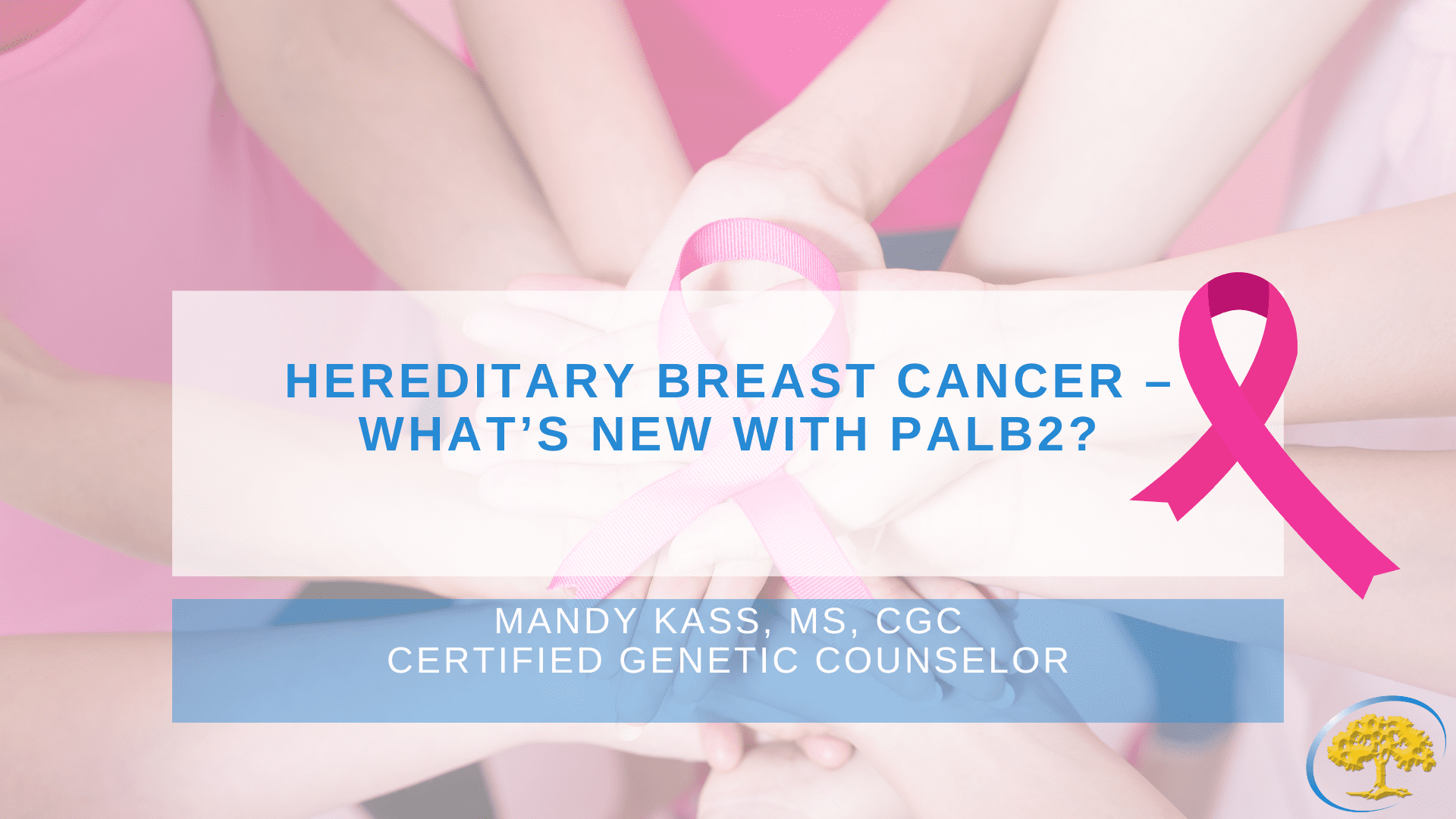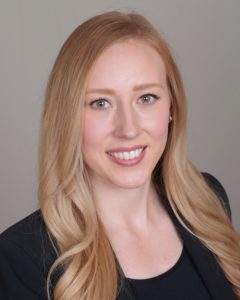
Posted 1 year ago
Hereditary Breast Cancer – What’s New with PALB2?
Approximately 10% of breast cancers are hereditary, meaning they are caused by a single gene mutation that is being passed along through the generations of a family. When it comes to hereditary breast cancer, many of us have heard of the BRCA1/2 genes, which are genes that are associated with a high risk for breast, ovarian, and other cancers in individuals with an inherited mutation. But there are other lesser-known genes, like PALB2 for example, that are also important in the discussion of hereditary breast cancer.
PALB2 stands for the “partner and localizer of BRCA2” and is a gene that interacts with the BRCA2 gene to help protect us from certain cancers by repairing damage in our DNA. When the PALB2 gene is mutated, meaning it is not functioning properly, DNA damage accumulates, which can eventually lead to cancer. Women with a harmful PALB2 mutation have an estimated 33-58% lifetime risk of developing breast cancer. We can compare this to the average woman’s risk of about 12%. In addition, there is a risk of ovarian cancer, pancreatic cancer, male breast cancer, and possibly prostate cancer in those with a PALB2 mutation.
Knowing if you have a mutation in the PALB2 gene is advantageous for multiple reasons. It allows for the pursuit of early detection through often earlier and more frequent screenings, and in some cases may have an impact on someone’s treatment plan if they have a current cancer diagnosis. It can also have an impact for biological relatives because the cancer risks associated with mutations in the PALB2 gene are inherited in an autosomal dominant manner. This means that children, siblings, and parents of individuals with a PALB2 mutation have a 50% (1 in 2) chance of having the mutation as well. Both males and females can inherit a PALB2 mutation and can pass it on to their children.
Patients and providers are becoming more aware of genetic testing and its importance in determining someone’s risk for cancer. If you have concerns about a personal and/or family history of cancer, its encouraged that you speak to your provider about a referral to a genetic counselor. A genetic counselor will take a thorough family history, specifically focusing on the cancer types in the family and ages at which relatives were diagnosed. If it’s determined that genetic testing is indicated for you, testing can usually be coordinated the same day. Genetic testing typically involves a blood or saliva sample and will evaluate the PALB2 gene along with a panel of other genes that are associated with hereditary cancer risks. Results of genetic testing are usually available in about 2-3 weeks. Genetic counselors are part of your care team at Ironwood. Please ask your Ironwood provider for a referral if you’d like more information about genetic testing or have questions about a personal and/or family history of cancer.
Mandy Kass, MS, CGC
Certified Genetic Counselor

The ultimate goal of cancer genetic counseling is to empower patients to use their personal risk information to better inform treatment and management decisions and to educate family members on their possible cancer risks.
Mandy obtained her Bachelor of Science degree in Psychology from Arizona State University in 2013. She then went on to pursue her Master’s Degree in Human Genetics from Sarah Lawrence College and graduated in 2016. Her training in genetic counseling included clinical rotations at several locations throughout New York City, including Columbia University Medical Center, Mount Sinai Beth Israel, and Bellevue Hospital.
Prior to pursuing her graduate degree, Mandy worked for the National Suicide Prevention Lifeline. She is also a member of the National Society of Genetic Counselors and of the Cancer Special Interest Group. Outside of work, Mandy enjoys exploring Arizona, traveling, and spending time with her family, friends, and two golden retrievers.
She is happy to be part of Ironwood Cancer & Research Centers and to manage a genetic counseling department based on individualized care, patient education, and supportive guidance.
